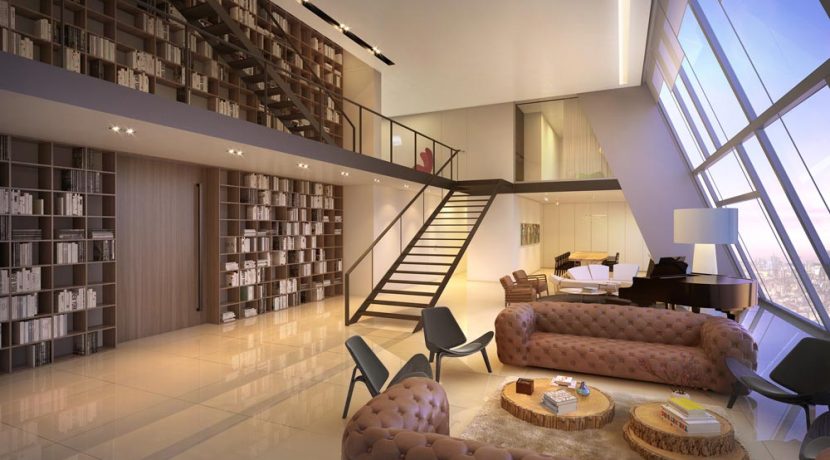Permanently-drawn curtains on the city’s empty luxury high-rises and dust gathering over shuttered storefronts in the Beirut Souks mall offer a glimpse of the economic gloom gathering over one of the world’s most indebted countries. Prolonged conflict in Syria and political divisions at home have hit market confidence.
Economic growth has been stagnant for years, but a sharp downturn in the property sector risks wider spillovers as cash-strapped developers postpone payments to contractors and run late servicing debt to creditors. The recent withdrawal of a central bank-subsidised housing loan scheme has pushed even more potential buyers away.
It’s what Houssam Batal, CEO of Premium Projects, calls the “almost catastrophic scenario” confronting Lebanon’s real estate sector.
“We’ve witnessed a delay in collection and had a very hard time to sell,” said Batal, whose development and construction company’s main focus is high-end central Beirut. After struggling to sell apartments valued at $1.2 million (Dh4.40 million), Batal says demand is now shaky for units worth half as much.
Real slump
The health of the real estate industry bears watching because it contributes an estimated 15 per cent to economic output. According to a study by Bank Audi, property sales plunged 17 per cent in the first nine months while the number of construction permits granted fell 23 per cent.
A construction boom that began before the Syrian conflict took its toll, means some apartments have been on the market for years. The collapse in oil prices in 2014 has deterred the country’s moneyed expatriates. Even Gulf Arab spenders, who once ploughed their disposable income into pied-a-terres or buy-to-let investments in Lebanon’s famously-hedonistic capital, are holding back.
The slump is mainly “due to the overall wait-and-see attitude among investors because of the macro and political uncertainties,” said Marwan Barakat, chief economist at Bank Audi.
Philippe Tabet, CEO of Har Properties, said the developer had to restructure its financial model after the downturn. “Clients are delaying payments and banks have increased interest rates, making it harder to obtain funds,” Tabet said, though he hadn’t heard of many companies defaulting so far.
A typical apartment in Beirut, wedged between the Mediterranean Sea and verdant mountains, can cost between $2,000 and $7,000 per square metre, depending on the neighbourhood.
Though listed residential prices have not fallen significantly, developers are offering more flexible payment plans. One development in Dbayyeh, just outside Beirut, allows customers to rent for up to three years with the right to purchase later. In urgent need of cash, some developers are offering steep discounts on new units, though most are holding out despite the collapse in sales.
A crisis spurs opportunities as well
A group of Lebanon’s developers and investors have set up the country’s first real estate investment platform.
Legacy One will purchase vacant apartments in about 100 projects in Beirut and its suburbs and resell them to buyers abroad, said Samir Cortas, head of the Real Estate Developers Association of Lebanon.
The plan is to channel as much as $1 billion into real estate in the hope of breathing life into the sector. Beirut-based Lucid Investment Bank is shaping the strategy and has received regulatory approval to raise $325 million in the first stage. It will allow creditors in troubled properties to swap their exposure to developers’ debt for bonds issued by the investment platform.
Loans linked to real estate comprise over a third of private-sector banking debt, making the scheme attractive to some, though it does little to address the economy’s underlying ills.
All rights reserved to the initial publisher for Gulf News
Collected and published by Arms &McGregor International Realty® editorial team. Get in touched with us at [email protected].

